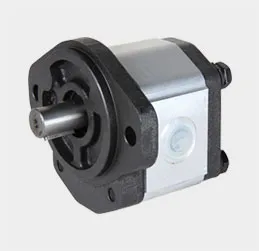die casting manufacturers
Understanding Die Casting Manufacturers An In-Depth Analysis
Die casting is a manufacturing process that involves forcing molten metal into a mold cavity under high pressure. This method is widely used across various industries, from automotive to electronics, due to its ability to produce complex shapes with high dimensional accuracy and excellent surface finishes. The success of die casting heavily depends on the capabilities and expertise of die casting manufacturers, who play a crucial role in the supply chain.
The Role of Die Casting Manufacturers
Die casting manufacturers are specialized companies that design, manufacture, and produce die-cast components. They cater to a diverse range of industries, including automotive, aerospace, electronics, and consumer goods. Their primary responsibilities include
1. Design and Engineering Before production begins, manufacturers work closely with clients to understand their requirements and specifications. They utilize advanced computer-aided design (CAD) software to create detailed 3D models of the components.
2. Tooling and Mold Making The quality of the die is paramount in the die casting process. Manufacturers design and produce high-quality molds that are durable enough to withstand repeated cycles. This phase involves precision machining and the selection of appropriate materials to ensure the longevity and effectiveness of the tooling.
3. Production Once the molds are ready, the next step involves the actual casting process. Die casting manufacturers use various materials, such as aluminum, zinc, magnesium, and copper alloys, to produce parts. The molten metal is injected into the mold under pressure, allowing for the creation of intricate designs with minimal waste.
4. Post-Processing After casting, products often require additional processes such as trimming, deburring, machining, and surface finishing. Manufacturers may also provide services such as plating, painting, and assembly to deliver a final product that meets customer specifications.
5. Quality Control A rigorous quality assurance process is essential in die casting. Manufacturers implement strict inspection protocols to check for defects, dimensional accuracy, and material integrity. This helps ensure that the final products adhere to industry standards and client expectations.
Factors to Consider When Choosing a Die Casting Manufacturer
When selecting a die casting manufacturer, several factors come into play. Clients should consider the following
1. Experience and Expertise An established manufacturer with years of industry experience is likely to have the expertise required to tackle complex projects. Their knowledge of materials, processes, and technologies can significantly influence the quality of the end products.
die casting manufacturers

2. Technology and Equipment Modern die casting involves advanced technology, such as automated machinery and advanced simulation software. Manufacturers that invest in the latest equipment are better equipped to produce high-quality parts efficiently.
3. Customization Capabilities Different projects have unique requirements. It is crucial to work with a manufacturer that offers customization in terms of design, material selection, and finishing processes to meet specific client needs.
4. Location and Lead Time Proximity to a manufacturer can impact shipping costs and lead times. Additionally, a manufacturer with a streamlined production process can ensure quicker turnaround times without compromising quality.
5. Reputation and Reviews Researching a manufacturer’s track record through customer reviews and case studies can provide insights into their reliability and the quality of their products.
Future Trends in Die Casting
The die casting industry is undergoing significant changes driven by technological advancements and shifts in market demands. Some of the key trends include
1. Sustainability With an increasing emphasis on environmental impact, manufacturers are adopting sustainable practices, such as using recycled materials and implementing energy-efficient processes.
2. Industry 4.0 The integration of smart technologies, such as IoT and artificial intelligence, is enhancing manufacturing processes. These technologies enable real-time monitoring, predictive maintenance, and data-driven decision-making.
3. Lightweighting As industries seek to reduce the weight of components for improved efficiency, die casting manufacturers are exploring new materials and innovative designs to create lighter yet durable parts.
Conclusion
Die casting manufacturers are vital players in the manufacturing landscape, enabling various industries to produce high-quality components efficiently. With a focus on innovation, quality, and sustainability, these manufacturers are well-equipped to meet the challenges of the future. By understanding their roles and capabilities, businesses can forge strong partnerships that lead to successful product outcomes.
-
crawler mounted drill rig-Baoding Hairun Machinery And Equipment Trading Co., Ltd.|Underground Drilling Solutions, Confined Space EfficiencyNewsAug.16,2025
-
Custom OEM Couplings | Precision Machining & ManufacturingNewsAug.16,2025
-
Advanced Drilling Solutions for Confined Spaces - Baoding Hairun Machinery | Crawler Mounted Drill Rig&Confined Space ApplicationsNewsAug.16,2025
-
Drill For Confined Spaces-Crawler Drill Rig for Mining Applications|Baoding Hairun Machinery And Equipment Trading Co., Ltd.NewsAug.16,2025
-
Crawler Mounted Drill Rig-Baoding Hairun Machinery And Equipment Trading Co., Ltd.|Compressed Air Power&Frame SupportNewsAug.15,2025
-
Crawler Drilling Rig - Baoding Hairun|Confined Space Drilling&Mine SafetyNewsAug.15,2025















